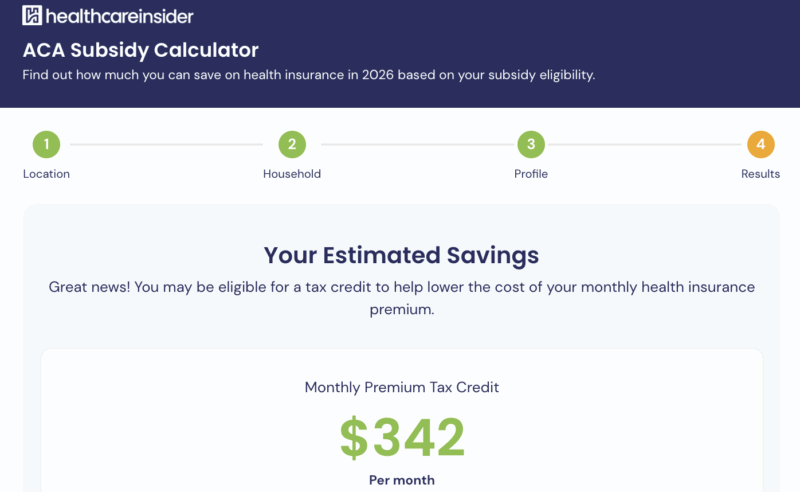Written by Hal Levy
Healthcare Writer
We want to help you make educated healthcare decisions. While this post may have links to lead generation forms, this won’t influence our writing. We adhere to strict editorial standards to provide the most accurate and unbiased information.
It helps to take care of your doctor, hospital and ambulance bills as soon as you’re able to do so. That’s easier said than done for many people. If your bills are too high for comfort, you’ll want to try and negotiate medical bills so that you pay less.
We spoke with Beth Moore – who led the case management division at the Patient Advocate Foundation (PAF) for years and is now PAF’s executive vice president of corporate communications – to learn how full-time medical bill counselors win payment relief. The PAF specializes in making medical bills easier to manage. Their free financial counselors appeal bills for beleaguered patients. PAF teaches countless more patients and caregivers how to take medical billing into their own hands.
Here are six can’t-miss steps you’ll need to cut your medical bills and put together a fair payment solution.
1. Understand Your Explanation of Benefits (EOB)

Two to four weeks after you’ve seen a doctor, you should expect an explanation of benefits (EOB) in the mail. An explanation of benefits is like a bill – it will show you how much you were charged for your care, as well as tell you why you received the specific kind(s) of care that you did.
If you don’t receive an explanation of benefits from your insurance provider after being discharged, call and ask for one (the exception is Medicare Part A and Part B beneficiaries, who don’t get an Explanation of Benefits. Medicare Advantage and Medicare Part D enrollees do get EOBs.)
EOBs Aren’t Bills: A billing statement and explanation of benefits are not the same thing. You don’t pay an EOB – it’s like a receipt, even if you haven’t paid yet. The explanation of benefits comes from your insurance company. You may get multiple EOBs from different specialists that you saw during the same visit.
Compare EOBs to Your Bill: Ask your medical provider to make sure that your bills are accurate and itemized (meaning that each individual service includes a detailed description and a cost amount). Compare these bills to what’s listed on your EOB. Medical coding mistakes are common, and even properly coded bills can be impossible to understand without explanation from your provider.
Your First EOB May Not Reflect Payment from Your Insurance Company: Depending on how complex your bill is, it may take another 30 days for your insurance company to mail you an updated EOB. Your updated EOB will show how much your insurer has paid. This will give you an accurate total of the remaining costs for which you will be responsible.
You should start asking about reducing your bill or making payment arrangements early – don’t wait until you receive an updated EOB.
2. Discover Who’s Billing You – Your Doctor or a Third Party?
Check to see who created your bill. Your bill won’t necessarily come from your medical provider. You don’t want to let that complicate things.
Third-Party Billing Companies: Your provider may have outsourced their bill collection to a medical billing company. Medical billing companies aren’t collection agencies, but they do handle financial affairs for doctors. Care for complex chronic illnesses like cancer frequently involves multiple specialists who don’t bill on their own, but instead outsource to a third-party medical billing company.
Internal Billing Department: Your bill may also have been handled directly by your provider. Providers with their own billing departments have a better reputation than third-party billing agencies, since internal billers are more engaged with the provider while third parties represent multiple medical offices.
In any case, you’ll want to have your bills and explanation of benefits ready when talking with medical offices.
3. Get Everyone – Bill Collectors, Insurance, and Your Doctor – on the Same Page

Once you have your insurer’s explanation of benefits, and you understand where it’s coming from, you’ll want to let everyone know that you’re actively figuring out payment arrangements. You’ll need to contact all of the following parties to make sure that everyone’s on the same page:
- Whoever’s actually billing you (internal or a third party);
- The source of your bills (hospital or doctor), if separate from whoever’s billing you;
- Any charity care provider you’re working with, if separate from whoever’s billing you;
- Your insurance company, to make sure that your care is covered to the fullest possible amount.
“We always advise patients to contact their billing agency,” Moore says. Being “proactive to postpone [bills]” helps protect you, even if you’re in the middle of negotiating with your medical provider.
4. Check Hospital and Government Resources

The good news: if you seek assistance, it’s realistic to expect that a significant amount of your bills will be taken care of. When the Patient Advocate Foundation seeks to reduce medical bills, Moore says, “[our] goal is a full write-off, or for it to be fully-covered by existing resources.”
See If You Were Qualified for Medicaid: Medicaid, the federal insurance program for low-income Americans, can pay for all of your medical bills for up to three months before the month you applied. You’re eligible for this emergency coverage if you could have received Medicaid when you generated the original charges (except in Arkansas, Indiana, Iowa, and New Hampshire).
Even if you wouldn’t have qualified in the past, Medicaid can help you in the future. Medicaid policies last for one year and pay your bills in full or nearly in full, depending on the state you live in. Check with your state’s Medicaid program to learn more.
Search for Charity Care: Your hospital may have an active financial assistance program. Sometimes, this program is called charity care. Charity care departments will want to qualify you for aid. After all, if your doctors can find a resource to help you pay for care, they’ll be paid too.
Charity care’s usefulness “depends on how organized [the program] is,” says Moore. “A good program will coordinate on your behalf once you reach the right person.”
A formal charity care service will coordinate with your billing agency (whether or not the billing department is connected to your doctor). Your charity care program can adjust the amount that you owe, even if the bill has already been sent to a billing agency.
Do as much homework as you can on hospital resources and medical information. This reduces the amount of time that you’ll spend learning to talk about hospital basics with the billing department, and increases the amount of time you can spend talking about your own bill. It shows that you’re prepared, and that you’re a responsible person to deal with.
Remember the Negotiated Rate: The negotiated rate is a discounted price for medical services that’s offered to big insurance companies. If your insurance company doesn’t cover you, or if you’re uninsured, at the very least the hospital should be able to offer you the same negotiated rate insurers pay.
You shouldn’t be charged more simply for not having insurance. “The uninsured need to be especially aggressive in pursuing a negotiated rate,” Moore says, as “many don’t know [these options exist].”
Find Your Foundation: Illness-related non-profit groups frequently operate their own charity programs to help those with a specific disease. The Leukemia & Lymphoma Society, for instance, helps patients with leukemia and lymphoma pay medical bills.
You can also search for “hearing aid assistance” or “glasses assistance”. The Patient Advocate Foundation maintains a list of local charities that are particularly effective in this regard.
Community-Based Financial Help May Be Available: It’s okay to ask for help by explaining your situation to your community.
“Culturally it’s uncomfortable to ask or talk about finances,” says Moore – but localities recognize how much it costs to be sick.
When you come home with big medical bills, you can look for financial assistance from outside the hospital. Your city, county, or state likely has a small emergency grant program
Community grants may help cover a variety of expenses from food to utilities to medications, which provide savings that can be used to pay medical bills. For instance, if you have to go back and forth to the hospital, your county may help you pay for transportation so that you can keep making medical appointments.
5. Offer to Work out a Discount Plan

If you pay in cash, or if you pay over time, additional options may become available. It may also help you to temporarily postpone payments for other bills, such as student loans, as a way of relieving financial pressure while you save up to pay.
Your Bill Reduction Depends On Your Income: Billing departments, charity care, and patient advocates will typically consider your income when negotiating your medical debt.
Use the Salary That’s Most Advantageous to You: “Your income and financial situation may have changed tremendously,” says Moore. “It’s important that you’re very clear about what time frame [your] income applies to.” If you’re making less than you were before your illness, you have every right to request that program eligibility be based off of your new, lower income.
For instance, your income last year with full-time employment may have been $80,000. But after a year of surgery, treatment, radiation, and therapy, you could be living on disability payments.
Your bank statement, prior tax return, and current income may all tell different stories, and you can choose which one best reflects your own.
Billing Periods Typically Last 12 Months: When you work out a payment plan, expect to split your payments into around 12 monthly installments. It’s possible to have more or fewer payments, depending on the size of your bills. If you establish a history of successfully making payments, it’s possible to extend this schedule significantly beyond 12 months.
Very Small Payments Postpone the Collection Process: As long as you’re adhering to the billing process that charity care or billing agency has set up, they cannot initiate the full collections process.
This won’t affect your ability to receive charity care “if you can demonstrate financial need,” Moore says. “Even if you’re in the midst of pursuing charity care or a full writeoff, you want to keep paying your bill. That way, they won’t turn you over to collections for the full amount.”
6. Find Steep Discounts If Your Prescription Drugs Aren’t Covered
You can visit Needymeds.org, a registered nonprofit, to see if your drug manufacturer has a charity care program. Applying to your drug manufacturer could be a quick solution.
It’s also possible to safely order drugs online. Another nonprofit, PharmacyChecker.com, verifies the safety of international pharmacies. These companies legally ship American drugs back into the country at a fraction of their U.S. cost.
While you’re online, you can search for commercial co-pay cards from your drug manufacturer. Your doctor or pharmacy can also point you in the direction of these cards, which may cover some or all of your out-of-pocket costs.
Taking the Next Steps
- Make sure you have the right copy of your Explanation of Benefits before assessing your bill.
- If your income is low, you may have access to heavily discounted healthcare options, including subsidies on HealthCare.com.
- Communication with your community and billing department is key. Help is available.
This is the second post in a series on negotiating high medical bills. Before you leave the hospital, you can also read our guide to prepare for medical bill negotiations. If you’re having trouble paying your bills following an urgent medical need, search for assistance programs such as Medicaid and charity care.
Thank you for your feedback!








